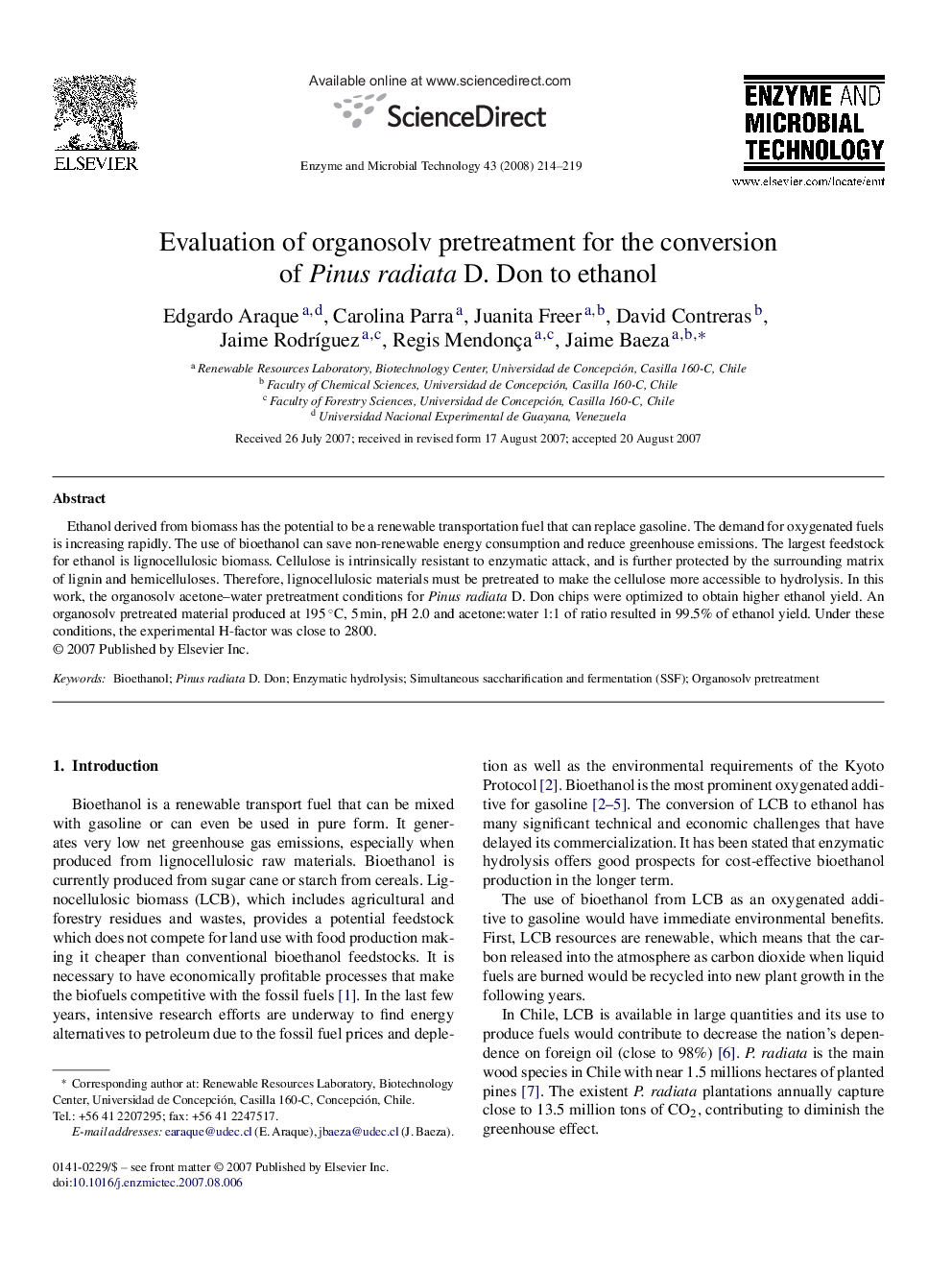| Article ID | Journal | Published Year | Pages | File Type |
|---|---|---|---|---|
| 17746 | Enzyme and Microbial Technology | 2008 | 6 Pages |
Ethanol derived from biomass has the potential to be a renewable transportation fuel that can replace gasoline. The demand for oxygenated fuels is increasing rapidly. The use of bioethanol can save non-renewable energy consumption and reduce greenhouse emissions. The largest feedstock for ethanol is lignocellulosic biomass. Cellulose is intrinsically resistant to enzymatic attack, and is further protected by the surrounding matrix of lignin and hemicelluloses. Therefore, lignocellulosic materials must be pretreated to make the cellulose more accessible to hydrolysis. In this work, the organosolv acetone–water pretreatment conditions for Pinus radiata D. Don chips were optimized to obtain higher ethanol yield. An organosolv pretreated material produced at 195 °C, 5 min, pH 2.0 and acetone:water 1:1 of ratio resulted in 99.5% of ethanol yield. Under these conditions, the experimental H-factor was close to 2800.
